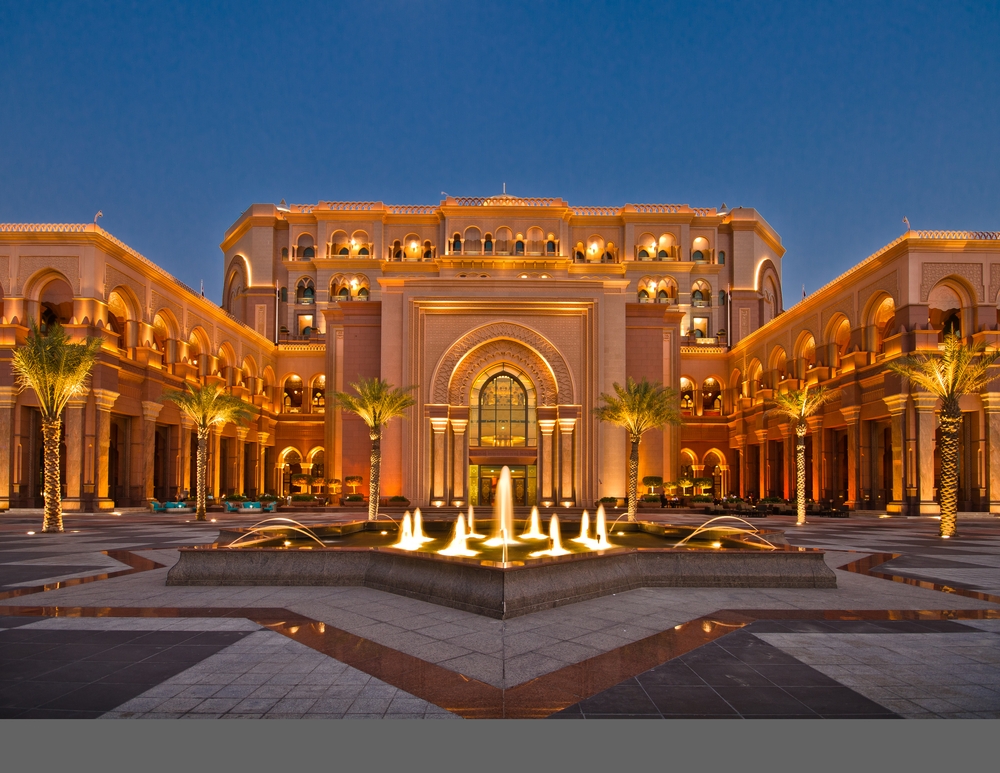We can't find the internet
Attempting to reconnect
Something went wrong!
Hang in there while we get back on track

What is a Luxury Hotel?
According to www.iAsk.Ai - Ask AI:
A luxury hotel is a type of accommodation that offers guests a premium experience, going beyond basic needs to provide exceptional service, amenities, and attention to detail.[1] There are no strict, standardized criteria (like a specific star rating) that definitively classify a hotel as "luxury." However, these hotels typically aim to provide a luxurious experience for their guests.[1]
Key Characteristics of Luxury Hotels
Luxury hotels are defined by their ability to create memorable experiences and evoke emotions in guests. This is achieved through a combination of factors, including exceptional service, attention to detail, and immersive experiences.[3]
Several characteristics often define a luxury hotel:
Luxury hotels come in various forms, each offering a unique experience:
Types of Luxury Hotels
- Exceptional Service: Luxury hotels prioritize personalized service, aiming to anticipate and exceed guest expectations.[1] Staff members are often highly trained and dedicated to providing attentive and discreet service.[6]
- High-Quality Amenities: Luxury hotels offer a range of high-end amenities, such as fine dining restaurants, spas, fitness centers, and concierge services.[1] These amenities are designed to enhance the guest experience and provide convenience and comfort.[6]
- Impeccable Design and Décor: Luxury hotels often feature sophisticated design, architecture, and décor, creating a visually appealing and inviting atmosphere.[1] The design may reflect local culture or history, adding to the unique character of the hotel.[4]
- Attention to Detail: Luxury hotels pay close attention to every detail, from the quality of linens and toiletries to the presentation of food and beverages.[1] This meticulous attention to detail contributes to the overall sense of luxury and exclusivity.[3]
- Personalization: Luxury hotels strive to personalize the guest experience by anticipating individual needs and preferences.[4] This may include customized services, tailored amenities, and unique experiences designed to create lasting memories.[3]
- Prime Locations: Luxury hotels are often located in desirable locations, such as world-class cities, scenic resorts, or exclusive destinations.[3] These locations provide guests with convenient access to attractions, transportation, and other amenities.[6]
Management of Luxury Hotels
- Luxury Hotels and Resorts: These are the quintessential luxury accommodations, offering top-notch service, amenities, and facilities.[4] They often feature large grounds, multiple dining options, spas, and fitness centers.[4]
- Boutique Hotels: Boutique hotels offer a more intimate and personalized experience, often with a unique theme or style.[4] They typically have fewer rooms, allowing for more attentive service and a stronger connection to the local culture.[4]
- Palace Hotels: Palace hotels are known for their opulence, grandeur, and historical significance.[6] They often feature stunning architecture, exceptional service, and a sense of exclusivity.[4]
- Urban Hotels: These hotels focus on convenience, efficiency, and sophistication, catering to business travelers and those seeking a stylish city experience.[4]
Managing a luxury hotel requires a specific set of skills and a commitment to excellence.[7] Luxury hotel managers must oversee all operations, processes, and procedures to ensure a high-quality guest experience.[7] Key aspects of luxury hotel management include:
The Importance of Luxury Hotel Management
- Communication: Effective communication is crucial for interacting with guests, handling complaints, and ensuring the team performs at its best.[7]
- Teamwork: Building and empowering a well-trained and dependable team is essential for providing exceptional service.[7]
- Accountability: Taking responsibility for all aspects of the hotel and addressing guest concerns with empathy and action.[7]
- Technology: Utilizing technology to streamline operations and enhance the guest experience.[7]
- Staying Current: Keeping up with luxury hotel trends and adapting to changing guest expectations.[7]
Luxury hotel management is essential for maintaining the high standards and exceptional experiences that define these properties. It involves overseeing all aspects of the hotel, from guest services and amenities to staff training and financial management.[7] The goal is to create a seamless and memorable experience for guests, ensuring they receive the value they expect for the price they pay.[7]
In conclusion, a luxury hotel is defined by its commitment to providing an unparalleled guest experience through exceptional service, high-quality amenities, impeccable design, and meticulous attention to detail. The management of these hotels requires a specific skill set and a dedication to excellence, ensuring that guests receive the luxurious and memorable stay they expect.
**The most relevant answer part is: ** A luxury hotel is defined by its commitment to providing an unparalleled guest experience through exceptional service, high-quality amenities, impeccable design, and meticulous attention to detail.[1] [3] [6]
Authoritative Sources
- Luxury Hotel. [Xotels Revenue Management Consulting]↩
- Redefining Luxury Hotel Service. [EHL Hospitality Business School]↩
- What Defines A Luxury Hotel?. [The PR Net]↩
- The Meaning of Luxury Hotel: Variety and Design. [NMDA]↩
- What are Luxury vs Upscale Hotels. [Inside Elsewhere]↩
- Guide to Luxury Hospitality. [Glion Institute of Higher Education]↩
- Luxury Hotel Management. [Cvent]↩

Sign up for free to save this answer and access it later
Sign up →